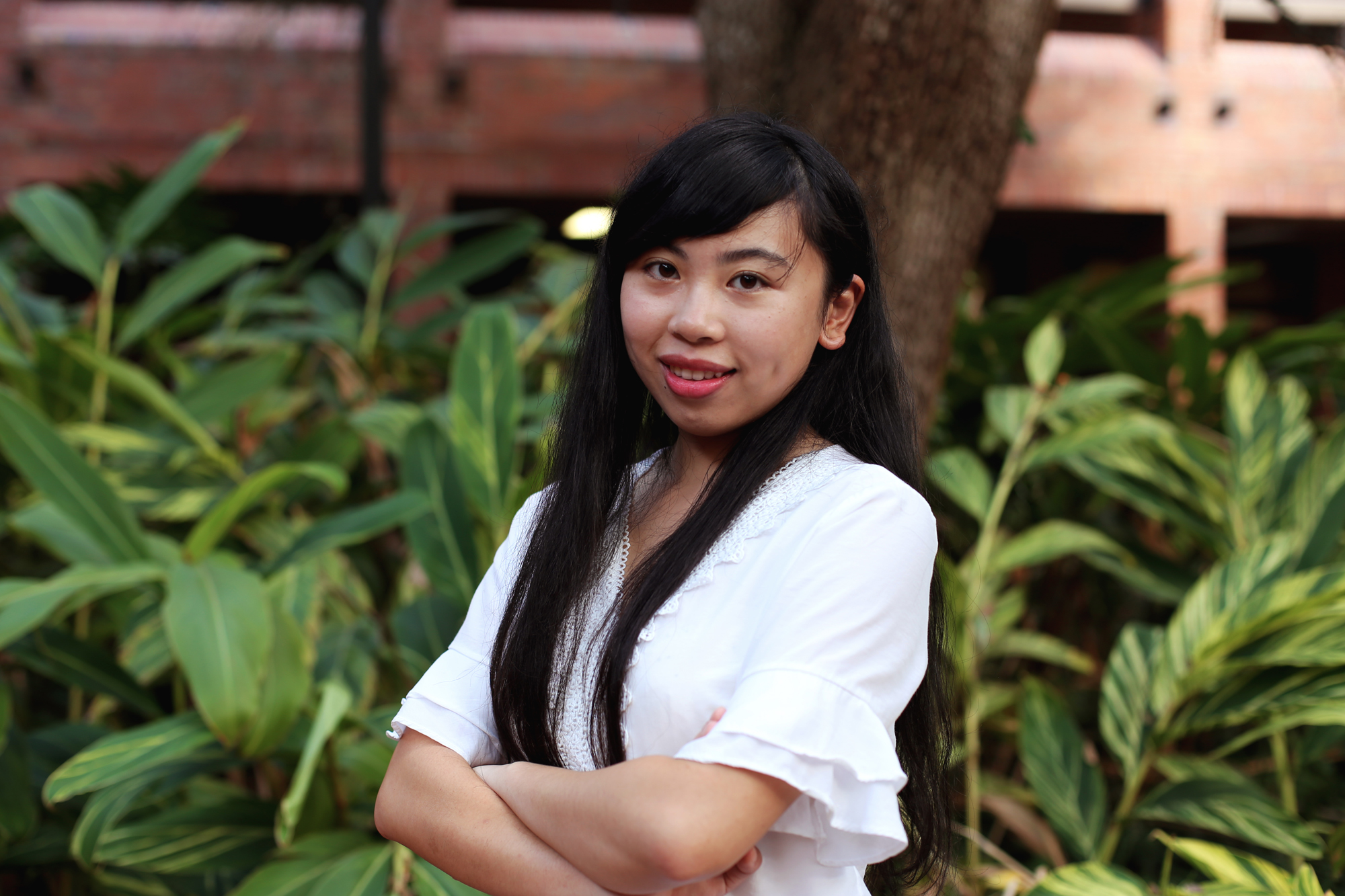
Alexis Brown: What’s your background?
Siwei Qin: I am originally from China. When I entered college, I majored in Chinese literature and Chinese language and minored in education. During and after that time, I also interned in some of China’s middle and high schools.
AB: How did you develop an interest in early childhood?
SQ: During my internship experiences, I really liked teaching young children. By teaching them, I helped them to acquire knowledge and to develop new skills. While I never knew the full impact of my instruction on their future, at least playing a small role in a child’s life felt really good. Over time, I wanted to learn and do more to impact my students’ development. I noticed many children had challenging behaviors in the classroom. That observation was a key contributor to my decision to further study here.
AB: What’s something about early childhood that most people don’t know?
SQ: I think sometimes there is a tendency to believe school-based education is a child’s largest opportunity to learn. For example, parents may take their children to school with the hope that a teacher will teach them every crucial skill they need for their future success and well-being. However, family-level education is also an important part of a child’s development. A family is the one constant in a child’s life, so parents’ engagement and interaction with their children can really be a driving force in a child’s future.
AB: What’s the coolest thing about joining the Center?
SQ: The coolest thing about being here is the opportunity to work with many wonderful people. My peers have extensive knowledge — especially when it comes to different educational experiences. I also enjoy my peers’ variety of personas, and really cherish the time I have to work with them. They have truly widened my horizons and exposed me to many frameworks and theories I didn’t know of before studying here.
AB: What’s a way that your work at the Center has impacted your perspective about early childhood?
SQ: The Center has changed my mind about how to train teachers through coaching. Before, I often engaged with other educators through workshops — which largely involve teaching them what they need to do. However, today I don’t think workshops are effective. Instead, I think practice-based coaching is more helpful. Using practice-based coaching, we are able to change teacher’s actions long-term.
AB: What is a challenge you like to tackle for the benefit of young children and their families?
SQ: Since coming to the United States, I have been impressed with the make-up of classrooms here. Most of the classrooms here are inclusive, but things are different in my country. We don’t have many inclusive classrooms, so I would love to introduce inclusive classrooms to China.
While I anticipate some challenges in this pursuit (teachers may have trouble managing classrooms if they have many students with disabilities), I am hopeful for the future. I think it is important to support teachers with instructional strategies like the ones I have learned here and to help them promote students’ positive behavior.
AB: Awesome. Last question — who are your advisors? What projects do you work on and what is your role?
SQ: My advisor is Dr. Maureen Conroy. I work in the BEST in CLASS lab. My role on this project is supporting data collection and management activities. For instance, I participate in collecting data on teachers and children in the field and assist with data entry and analysis.
AB: Thanks Siwei!
Story by: Alexis Brown
